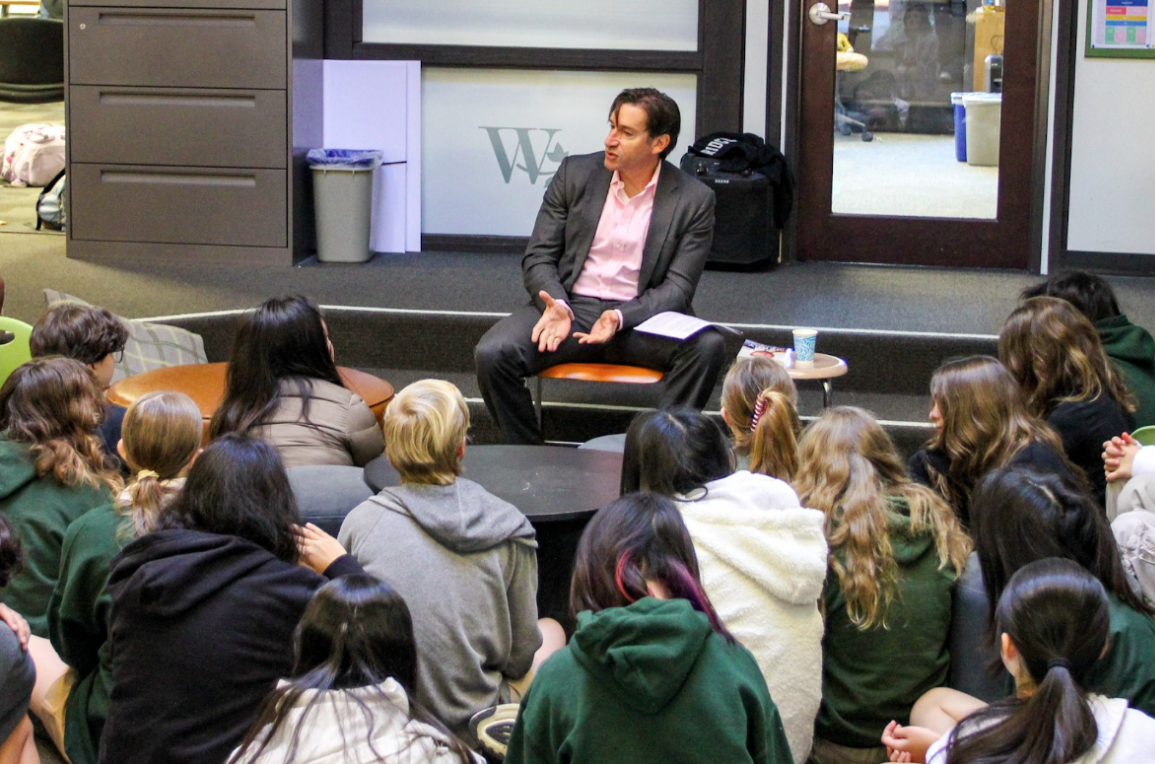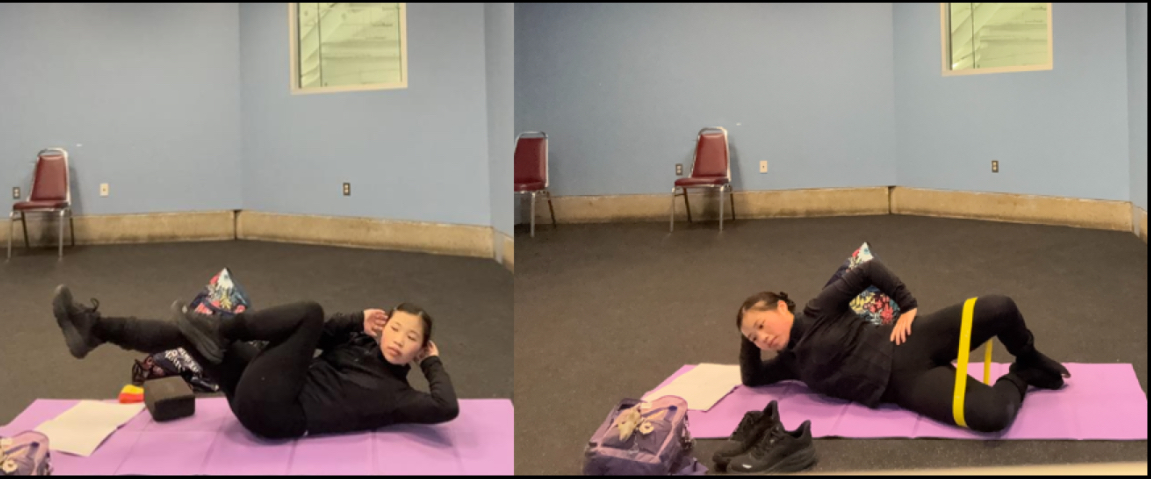On Monday, January 8, 8th grade students met in the Mudd Pit for a deep dive into the criminal justice system with guest speaker and criminal justice lawyer Mr. Mark Mermelstein.
8th Grade History Teacher Ms. Jennifer Irish has been discussing the function and flaws of the criminal justice system using the book Just Mercy: A True Story for the Fight for Justice (adapted for young adults) by Bryan Stevenson. Stevenson’s book offers a powerful glimpse into the not-so-perfect justice system from 1983 through the early 2000’s across the United States through his experiences as a criminal justice defense attorney. Stevenson represented minorities including adults and juveniles sentenced to life in prison without parole, prisoners on death row, and others in the criminal justice system. With these individual stories, Just Mercy helped students gain a better understanding of not just the justice system, but the systemic racial inequalities present in everyday society.
During the talk, Mr. Mermelstein shared his perspectives of the criminal justice system through real life experiences and answered many questions arising from students’ study of Just Mercy. Mr. Mermelstein has been practicing law for 25 years. “We have a system that works pretty well, I would say, but it’s not perfect by any [means]. There are definitely situations where guilty [folk] get off,” said Mr. Mermelstein.
During his talk, he addressed students’ questions about the legal system in the United States. Mr. Mermelstein explained how the criminal justice system is designed to work and delved into the complexities of differentiating between state and federal courts. He also discussed the challenges related to evidence disclosure, potential misconduct, and the override system in death penalty cases.
Throughout the talk, he shed light on potential flaws and broken aspects of the system, particularly in places like Alabama, where issues of racial bias, jury composition, and the discretionary power of prosecutors and judges can impact defendants’ access to a fair trial.
“It’s nice to have someone from California tell us the differences between California and Alabama since most of what Bryan Stevenson’s reporting on is what’s happened in Alabama. And those two states are very, very, very different. So students need to have that perspective,” Ms. Irish said.
8th grade students gained insights into the complexities of the legal system from Mr. Mermelstein’s expertise.
“I learned that the legal system has a lot of biases and flaws, but it’s kind of all we can do, since there is no perfect legal system,” said Amelie S. ’28.
Amelie added, “I was really curious as to how lawyers being paid affects the case. He said that he gets paid the same way for a private or a public defender, so I found that really interesting.”
Additionally, Poppy B. ’28 said, “I thought that a lot of what Mr. Mermelstein mentioned during his talk is very true, and I liked hearing about his perspective on the justice system. I agreed with a lot of the things that he said.”
Students also read Harper Lee’s To Kill a Mockingbird in 8th grade English at the same time as reading Just Mercy, an intentional pairing.
“I think one of the important parts about Just Mercy is realizing how the injustices that have happened in the criminal justice system [is] still happening today. The same problems that characters in To Kill a Mockingbird faced are things that people are still facing today,” said Ms. Irish.
As a minority himself, Bryan Stevenson also represents minority voices in his work, and some students would have liked to have heard more from a person of color working in the justice system. Ms. Irish noted that in the past, Westridge has hosted legal professionals with a minority background.
“I don’t think we have really addressed that this year, but last year, I had a parent who was a minority lawyer, and he talked about his own experience in the criminal justice system as a minority lawyer. This year, I didn’t have access to someone like that—who could bring that perspective—but it’s definitely something that we could address in the future,” she said.
When asked about what she wished students would take away from the talk, Ms. Irish replied, “I think that the opportunity to hear someone’s real life experience working within the court system was what I was really hoping to hear.”




























![Dr. Zanita Kelly, Director of Lower and Middle School, pictured above, and the rest of Westridge Administration were instrumental to providing Westridge faculty and staff the support they needed after the Eaton fire. "[Teachers] are part of the community," said Dr. Kelly. "Just like our families and students."](https://westridgespyglass.org/wp-content/uploads/2025/03/dr.-kellyyy-1-e1748143600809.png)
























